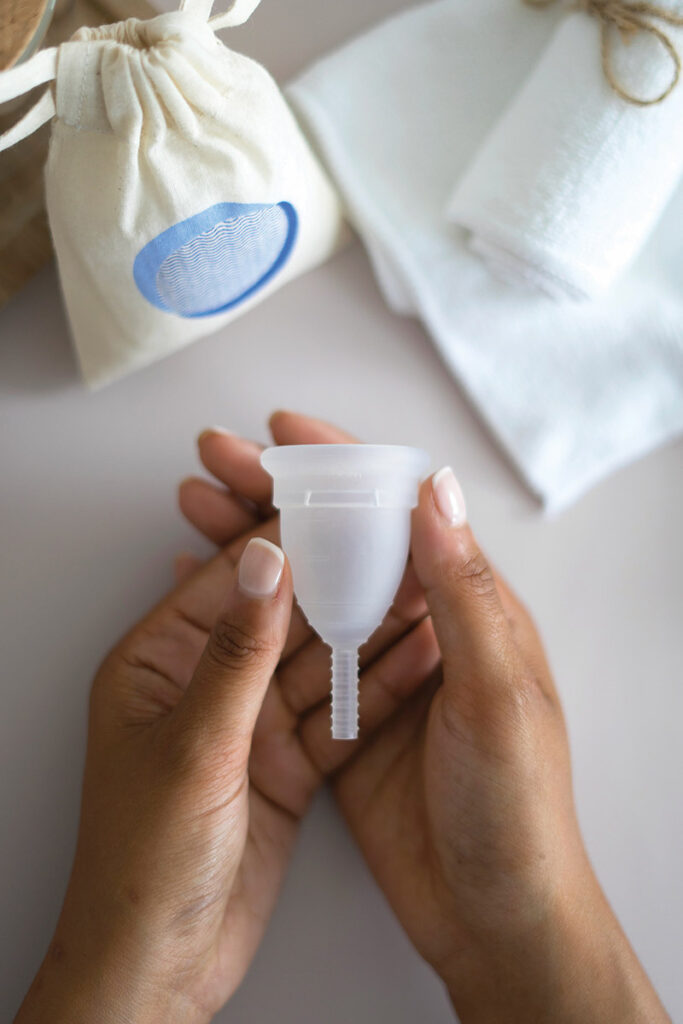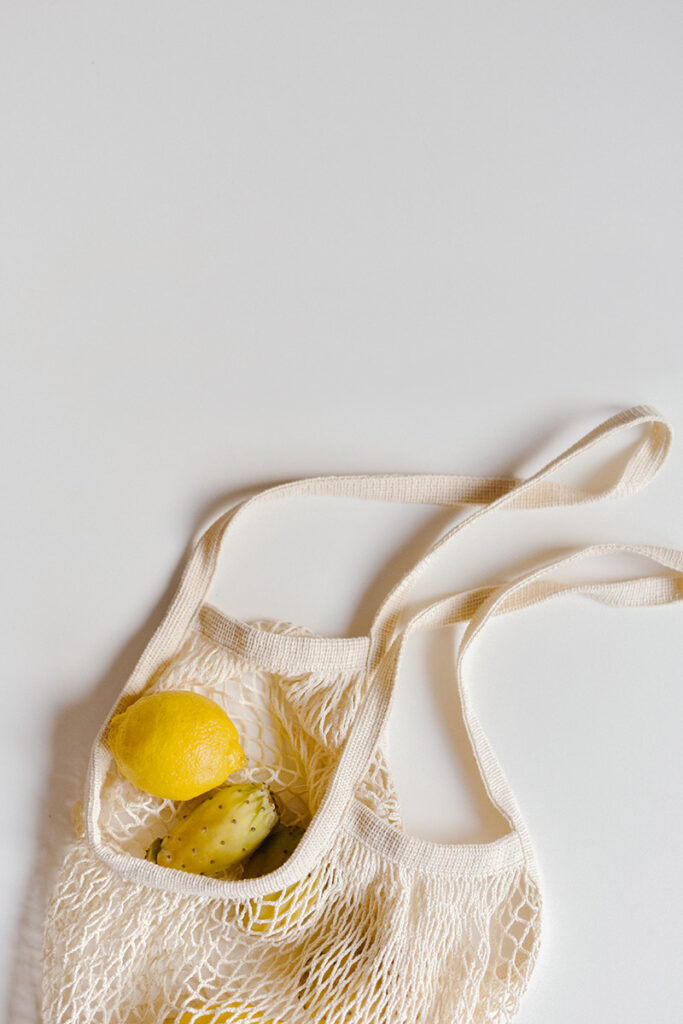100 Zero Waste Tips: A Guide to Sustainable Living
A zero waste lifestyle has always been a hot topic, and for good reason. With the increasing awareness of environmental issues and the negative impact of human activities on our planet, many people are looking for ways to live more sustainably.
The zero waste movement aims to reduce the amount of waste we produce by adopting sustainable habits and practices. This means producing as little waste as possible by reducing, reusing, and recycling.
However, it’s easier said than done when it comes to implementing these changes in our daily lives. That’s why we have put together 100 zero waste tips to help you make small yet impactful changes towards a more sustainable lifestyle.

Benefits of Zero Waste Lifestyle
Adopting a zero waste lifestyle has numerous benefits. Besides the biggest one – reducing your environmental impact, it also has several other advantages:
Reduces landfill waste
Landfills are a major source of greenhouse gas emissions and can pollute the surrounding environment.
They are mainly caused by the disposal of non-biodegradable waste (e.g. plastic) that takes hundreds of years to decompose.
By producing less waste, we can greatly reduce the need for landfills and their harmful effects.which takes hundreds of years to decompose.
Saves money
Living sustainably also means being mindful of our consumption habits. By buying less and reusing what we have, we can save a significant amount of money on unnecessary purchases.
Plus, by reducing waste, you can also lower your trash bill as many cities charge for garbage collection based on the amount of waste produced.
Promotes a healthier lifestyle
Many zero waste practices, such as reducing plastic usage and opting for natural cleaning products, have health benefits.
Plastic can contain harmful chemicals that can leach into our food and water, while harsh cleaning products can cause health issues when inhaled.
Conserves natural resources
Natural resources like water, energy, and raw materials are used in the production of goods. They are not infinite and can be depleted if we continue to consume at an unsustainable rate.
If we can manage to reduce our waste, we can also conserve these precious resources for future generations. For example, by using reusable bags instead of plastic ones, we can reduce the demand for oil and natural gas used to produce plastic bags.

Reduces greenhouse gas emissions
Greenhouse has emissions is a term first used in the 1980s to describe gases, such as carbon dioxide (CO2), that trap heat within Earth’s atmosphere.
These gases contribute to climate change by trapping heat and causing the earth’s temperature to rise. A significant source of greenhouse gas emissions is waste production and disposal.
One of the main sources of greenhouse gas emissions is waste, specifically methane gas produced by decomposing organic matter in landfills.
For example, food waste in landfills produces methane gas which is 25 times more potent than carbon dioxide. By reducing our waste, we can reduce the amount of methane gas produced and therefore help mitigate the effects of climate change.
Encourages sustainability
Sustainability has become one of UN’s Sustainable Development Goals (SDGs) since 2015, and has become a buzzword and a key focus for individuals, businesses, and governments.
Reducing waste is an essential aspect of sustainability because it allows us to minimize our impact on the environment and preserve natural resources for future generations.
By reducing waste, we also create a more sustainable economy as we decrease the demand for resources and reduce costs associated with waste management.
Supports a circular economy
A circular economy is an economic system that aims to eliminate waste by keeping resources in use for as long as possible. A good example of a circular economy in action is recycling.
By reducing our use of plastic bags and increasing their reusability, we can contribute to a more circular economy. This means that instead of disposing of plastic bags after one use, they can be reused multiple times before being recycled.
This not only reduces waste but also conserves resources and energy used in the production of new bags. Additionally, it reduces the amount of plastic pollution in our environment.
Promotes responsible consumerism
Reducing waste also promotes responsible consumerism. By being mindful of what we purchase and how we dispose of it, we can make more sustainable choices that benefit both the environment and our wallets.
This includes buying products with minimal packaging, using reusable containers instead of disposable ones, and repairing or repurposing items instead of throwing them away.
Responsible consumerism also involves supporting companies that prioritize sustainability in their practices and purchasing from local businesses to reduce carbon emissions from transportation.

Starting Your Zero Waste Journey
Embarking on a zero waste journey can be overwhelming, especially if you haven’t practiced sustainable habits before. Here are a few tips to get you started:
Mindset change
It’s important to understand that zero waste is not about perfection, but rather about progress. It’s about making small changes in your daily life that will eventually add up to a big impact.
One way to change your mindset is to focus on the positive. Instead of thinking about what you can’t do, focus on what you can do, like choosing reusable options, reducing your consumption, and supporting sustainable businesses.
Have realistic goals
Setting realistic goals is key to a successful zero waste journey. Start by identifying areas in your life where you can make changes.
For example, you could start by bringing your own reusable bags to the grocery store, or by using a refillable water bottle instead of buying bottled water.
Or, if your goal is to reduce food waste, start by planning meals ahead of time, only buying what you need, and learning how to properly store and preserve food.
Educate yourself
Take the time to educate yourself about the environmental impact of our daily habits. This will help motivate you to make changes and give you a better understanding of how your actions can make a difference.
You can also join online communities or attend local events to learn from others who are on a zero waste journey. Sharing tips and experiences can be helpful in staying motivated and finding new ways to reduce waste.
It’s also important to remember that everyone’s journey is different, and what works for one person may not work for another.
Start small and build from there. As you become more comfortable with your new habits, you can start to tackle bigger challenges.

100+ Zero Waste Living Tips You Can Start from Home
Although it’s impossible to make one move that will change your lifestyle completely, there are many small and simple changes you can make to reduce waste at home.
In deed, making small changes around your home can lead to bigger changes in your community and the environment.
So, if you don’t know where and how to start yet, here are 100+ zero waste tips you can start implementing in your daily life:
Kitchen
- Use reusable shopping bags.
- Shop in bulk to reduce packaging waste.
- Bring your own containers for takeout or leftovers.
- Compost food scraps to reduce landfill waste.
- Use cloth napkins instead of paper ones.
- Switch to a reusable water bottle.
- Avoid single-use plastic cutlery and straws.
- Use glass or stainless steel food storage containers.
- Buy fresh produce without plastic packaging.
- Make your own cleaning products.
- Ditch disposable coffee pods in favor of a French press or pour-over.
- Use a refillable water filter instead of buying bottled water.
- Grow your own herbs and vegetables at home.
- Reduce food waste by meal planning and proper storage.
- Eliminate paper towels; use washable cloth towels instead.
- Opt for a bamboo or metal straw instead of disposable ones.
- Use a dishwasher with a full load to save water and energy.

Bathroom
- Choose shampoo and soap bars over plastic bottles.
- Use a safety razor with replaceable blades instead of disposable razors.
- Use a bidet attachment to reduce toilet paper use.
- Replace disposable menstrual products with menstrual cup.
- Opt for a bamboo toothbrush instead of plastic ones.
- Buy toothpaste in recyclable or glass containers.
- Use a refillable dispenser for hand soap and body wash.
- Avoid cosmetics with excessive packaging.
- Make your own skincare products using natural ingredients.
- Collect rainwater for flushing toilets or watering plants.
- Use a low-flow showerhead to conserve water.
- Recycle empty toiletry containers.
- Replace disposable cotton balls with washable alternatives.

Living Room
- Choose furniture made from sustainable materials.
- Repurpose or upcycle old furniture instead of buying new.
- Use energy-efficient lighting and turn off lights when not in use.
- Use reusable, washable cloth napkins and coasters.
- Decorate with plants to improve air quality.
- Repair and maintain electronics instead of replacing them.
- Invest in energy-efficient appliances.
- Avoid single-use decorations and party supplies.
- Use natural cleaning products in the living room.
- Reduce paper clutter by going digital with bills and subscriptions.
Bedroom
- Use a mattress made from natural and non-toxic materials.
- Repair or repurpose old furniture and decor.
- Donate or recycle unwanted clothing and accessories.
- Wash clothes in cold water to save energy.
- Hang clothes to dry instead of using a dryer.
- Use a reusable laundry bag or hamper.
- Keep the bedroom well-ventilated to avoid using air conditioning.
- Invest in blackout curtains to regulate temperature naturally.
- Reduce electronic waste by recycling old gadgets and chargers.

Garden
- Compost kitchen scraps for nutrient-rich soil.
- Plant a garden to grow your own vegetables and herbs.
- Collect rainwater to water your garden.
- Avoid chemical pesticides and opt for natural alternatives.
- Mulch to conserve water and suppress weeds.
- Attract pollinators with native plants and flowers.
- Use a push mower instead of a gas-powered one.
- Install a drip irrigation system to minimize water waste.
- Repurpose household items as garden tools or decor.
- Create a wildlife-friendly habitat with bird feeders and bat houses.
Grocery Shopping
- Bring your own reusable shopping bags.
- Shop in bulk with reusable containers.
- Buy locally to reduce transportation emissions.
- Choose products with minimal or recyclable packaging.
- Purchase items with longer shelf lives.
- Make a shopping list to avoid impulse purchases.
- Support farmers’ markets and local producers.
- Bring your own produce bags for fruits and vegetables.
- Use a grocery list app to reduce paper waste.
- Avoid individually wrapped snacks and single-use plastic items.

Clothes Shopping
- Buy at second-hand market or thift store.
- Choose clothing made from sustainable materials.
- Support ethical and eco-friendly clothing brands.
- Repair or alter clothes instead of discarding it.
- Host clothing swaps with friends or family.
- Invest in high-quality clothing that lasts longer.
- Wash clothes in cold water and line dry them.
- Avoid buying clothes you rarely wear or need.
- Opt for timeless, versatile pieces.
- Donate or recycle old clothing responsibly.
Work and School
- Bring your lunch in a reusable container.
- Use a refillable water bottle and coffee cup.
- Print double-sided and use scrap paper for notes.
- Participate in a carpool or use public transportation.
- Minimize energy use by turning off devices when not in use.
- Recycle or repurpose old office supplies.
- Reduce paper waste by reusing folders and binders.
- Choose a eco-friendly commute, such as biking or walking.
- Encourage sustainability initiatives in the workplace or school.

Social Gatherings
- Use cloth napkins and tablecloths for gatherings.
- Host zero-waste parties with reusable plates and utensils.
- Plan potluck-style meals to reduce food waste.
- Offer reusable drinkware instead of disposable cups.
- Dispose of waste properly at events, recycling when possible.
- Choose local and sustainably sourced food and drinks.
- Opt for digital invitations and event planning.
- Donate leftover food and decorations to minimize waste.
Travel
- Bring your own travel mug for coffee and beverages.
- Pack a reusable water bottle to fill up at water stations.
- Pack snacks in reusable containers to avoid single-use packaging.
- Bring a cloth tote bag for shopping and souvenirs.
- Use a solid shampoo and conditioner bars to reduce liquid toiletries.
- Choose eco-friendly accommodations that practice sustainability.
- Explore destinations with eco-tourism options and support local conservation efforts.
- Offset your travel-related emissions with carbon credits.
- Minimize paper waste by using digital maps and travel documents.

Dealing with Waste
So, what should we do if we still have waste that we cannot avoid? For example, vegetables scraps, food packaging, and other non-recyclable or compostable items. Here are some tips for dealing with waste in a sustainable way:
Composting at Home
Composting at home is a great way to reduce waste and create nutrient-rich soil for your garden. Here are a few tips to get started:
- Start with a small compost bin and gradually add more material as you get the hang of it.
- Use a mix of “green” materials (like food scraps and grass clippings) and “brown” materials (like leaves and paper) to keep your compost balanced.
- Turn your compost regularly to help speed up the decomposition process.
- Avoid adding meat, dairy, or oily foods to your compost, as they can attract pests and slow down the composting process.
Recycling Tips
Recycling is an important part of reducing waste, but it’s important to do it correctly to avoid contamination. The most important thing you need to remember when recycling is to always check your local recycling guidelines.
Every city has different rules and regulations for what can and cannot be recycled, so it’s important to educate yourself on the specifics of your area. Here are a few general tips for recycling:
- Rinse out bottles, cans, and containers before placing them in the recycling bin to avoid contamination.
- Remove any caps or lids from plastic bottles
- Flatten cardboard boxes to save space in your recycling bin.
- Avoid putting plastic bags in your recycling bin, as they can get tangled in the machinery at recycling facilities.

Zero Waste Lifestyle Challenges
Why not spice things up and challenge yourself to live a more sustainable, zero waste lifestyle? Here are some fun challenges to try, and you can try them at home, at work, and even with friends and family!
Challenge 1: Finding Zero Waste Alternatives
One of the biggest challenges in a zero waste lifestyle is finding alternatives to products that come in packaging.
Start by researching stores in your area that offer bulk items and bring your own reusable containers for things like grains, nuts, and spices. You can also try making your own household cleaners using simple ingredients like vinegar and baking soda.
You can also try making your own products, such as cleaning supplies, toothpaste, deodorant, and other home care or self-care products. These are fun activities you can also do with kids.
Challenge 2: Reduce Food Waste
Did you know that approximately one-third of all food produced in the world is wasted? Not only is this a waste of resources, but it also contributes to greenhouse gas emissions.
Reduce your food waste by planning meals ahead of time, buying only what you need, and properly storing and preserving food.
You can also try composting food scraps and using them as fertilizer for your plants, or donating excess food to local food banks.
Challenge 3: Go Plastic-Free
Single-use plastics are a major contributor to pollution and harm to marine life. Try going plastic-free for a week by avoiding products with excessive packaging, opting for reusable containers and bags, and saying no to single-use items like straws and plastic cutlery.
This challenge will not only reduce your plastic consumption but also make you more aware of the amount of plastic we use in our daily lives.

Challenge 4: Declutter and Donate
Minimalism is a key aspect of a zero waste lifestyle. Take on the challenge of decluttering your home, getting rid of items that you no longer need or use, and donating them to those in need.
Not only will this help reduce waste in your home, but it can also bring a sense of peace and organization to your living space.
Challenge 5: Zero Waste Shopping
Challenge yourself to only buy items that have minimal or no packaging. This means buying fruits and vegetables without packaging, bringing your own reusable bags to the grocery store, and skipping items with unnecessary plastic packaging.
You can also look for zero waste stores in your area, where you can buy items in bulk with your own containers to reduce packaging waste.
Challenge 6: Sustainable Transportation
Transportation is another major contributor to greenhouse gas emissions. Challenge yourself to find ways to reduce your carbon footprint by opting for sustainable modes of transportation such as walking, biking, or taking public transit instead of driving a car.
If you can share a car (car pool) with your neighbors or colleagues, that is another great way to reduce emissions and build a sense of community.

Challenge 7: Resisting Temptation to Buy New Things
It can be tempting to buy new things, especially when you see something you like that is not available in a zero waste option.
To resist temptation, ask yourself if you really need the item and if you have something similar that can be repurposed or reused.
If you’re a fan of vintage or secondhand items, challenge yourself to only buy used items instead of new ones. This not only reduces waste but also supports a circular economy.
Challenge 8: Support Sustainable and Local Business
When you do need to buy something new, do some research and support brands that prioritize sustainability.
Look for companies with ethical and eco-friendly practices, such as using sustainable materials and implementing fair labor practices. These companies often have a smaller carbon footprint and are actively working towards reducing waste in their production processes.
You can also support local businesses by buying food at farmers market instead of grocary stores, which not only reduces transportation emissions but also helps to strengthen your community.
Challenge 9: Zero Waste Cleaning
Instead of normal cleaning products that often come in plastic packaging, opt for zero waste alternatives like liquid castile soap, vinegar, and baking soda.
These natural products not only reduce waste but also minimize the use of harmful chemicals in your home. Or you can purchase refillable and bulk options from zero waste stores instead of single-use bottles.
You can also make your own cleaning products using simple ingredients like lemon juice, olive oil, and essential oils. This not only reduces waste but also saves money in the long run.
You can also reduce waste by using reusable cleaning cloths instead of disposable paper towels. Not only is this better for the environment, but it also saves you money in the long run.

Challenge 10: Cut on Paper Clutter
Lastly, try to cut down on paper waste by using a digital calendar and taking notes electronically instead of using traditional pen and paper. This not only reduces waste but also helps you stay organized and clutter-free.
As a books lover, I personally understand the importance of physical books, but you can also opt for e-books or audiobooks instead of buying physical copies. This reduces paper waste and also saves space in your home.
In addition, unsubscribe from unnecessary mailing lists that just end up in your junk box and opt for e-bills instead of paper bills. You can also request to receive electronic receipts instead of paper ones when shopping.
These small changes can greatly reduce paper waste and contribute to a zero waste lifestyle. Remember, every little action counts towards a more sustainable future for our planet.
Before You Go
We hope that these tips have been helpful and that you feel empowered to make positive changes in your life.
You don’t have to do everything on one day, but by making small changes and incorporating them into your daily routine, you can make a big impact on reducing waste.
Remember, the goal is progress, not perfection. Don’t be too hard on yourself if you slip up or make mistakes along the way.
Just keep trying and stay committed to living a more sustainable lifestyle for the benefit of our planet and future generations.





